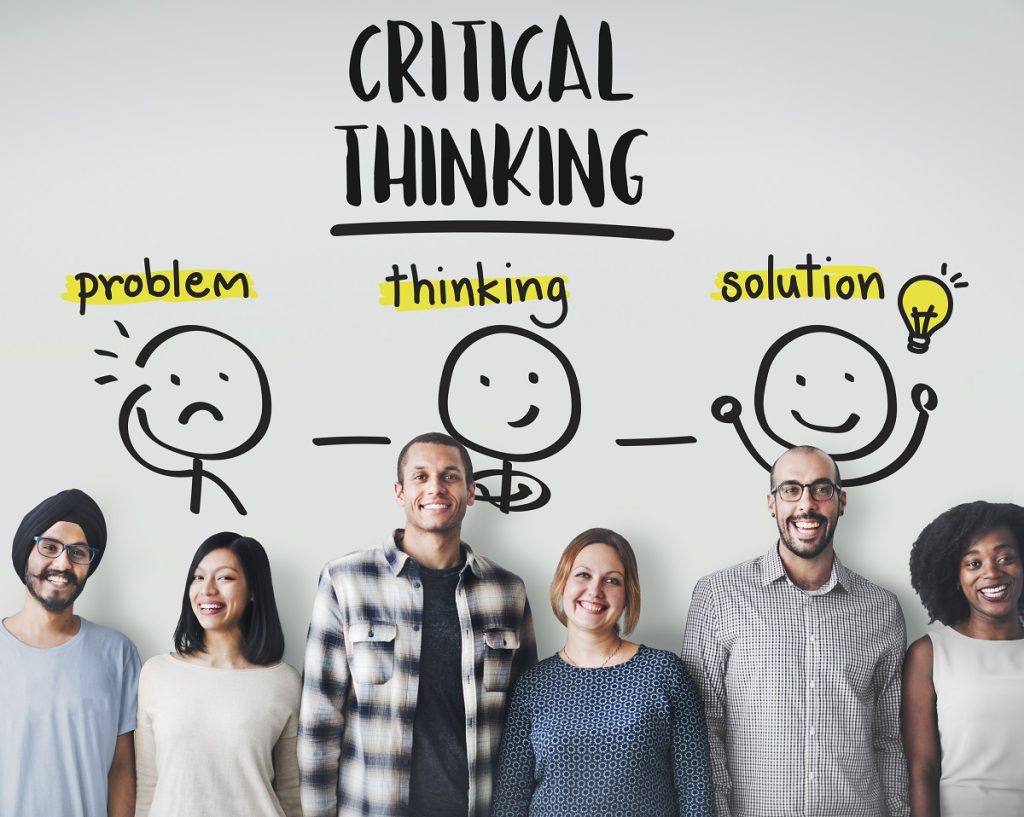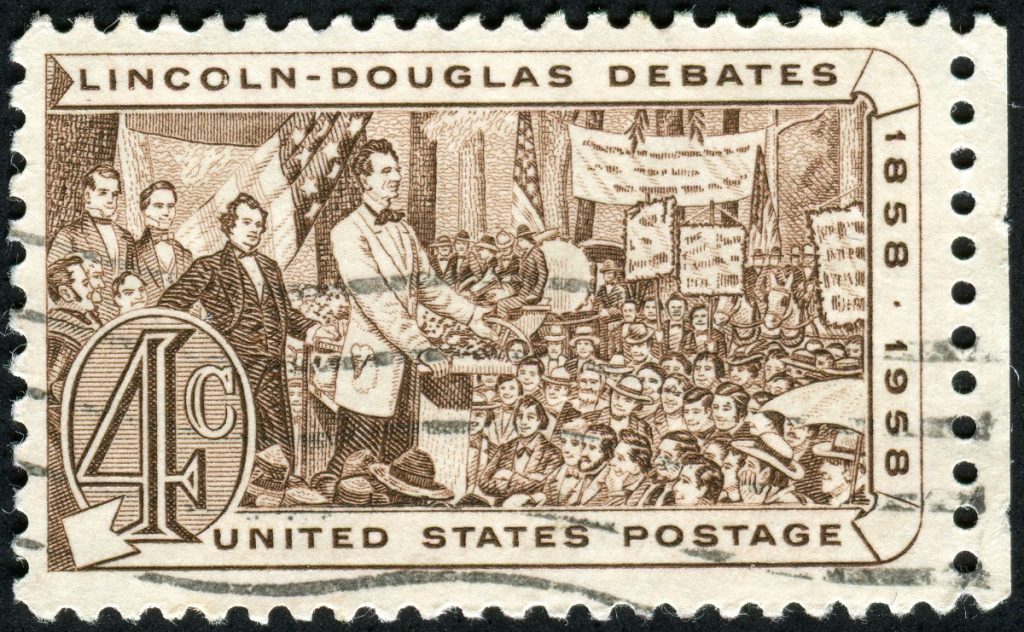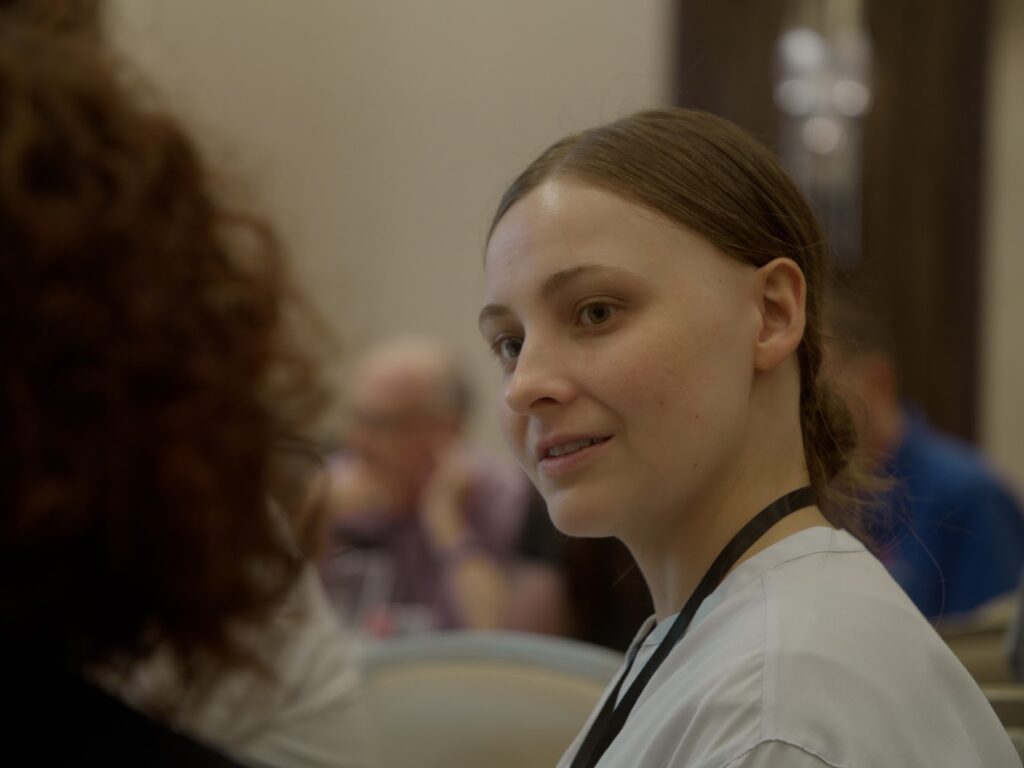
Part 2: Situation and Analysis

7 Opposing Viewpoints
Handling opposing viewpoints.
Because an argument implies differing points of view on the subject, you must be sure to acknowledge those opposing ideas. Avoiding ideas that conflict with your own gives the reader the impression that you may be uncertain, fearful, or unaware of opposing ideas. Thus it is essential that you not only address counterarguments but also do so respectfully.
Try to address opposing arguments earlier rather than later in your essay. Rhetorically speaking, ordering your positive arguments last allows you to better address ideas that conflict with your own, so you can spend the rest of the essay countering those arguments. This way, you leave your reader thinking about your argument rather than someone else’s. You have the last word.
Acknowledging points of view different from your own also has the effect of fostering more credibility between you and the audience. They know from the outset that you are aware of opposing ideas and that you are not afraid to give them space.
It is also helpful to establish the limits of your argument and what you are trying to accomplish. In effect, you are conceding early on that your argument is not the ultimate authority on a given topic. Such humility can go a long way toward earning credibility and trust with an audience. Audience members will know from the beginning that you are a reasonable writer, and audience members will trust your argument as a result. For example, in the following concessionary statement, the writer advocates for stricter gun control laws, but she admits it will not solve all of our problems with crimes:
Such a concession will be welcome by those who might disagree with this writer’s argument in the first place. To effectively persuade their readers, writers need to be modest in their goals and humble in their approach to get readers to listen to the ideas. Certain transitional words and phrases aid in keeping the reader oriented in the sequencing of a story. Some of these phrases are listed here:
Phrases of Concession
Opposing Argument Examples
As you read, look for the following:
- What is the author’s thesis?
- What key points does the author use to argue the thesis?
- How does the author use reasoning, research and/or examples to affirm his viewpoint?
- How does the author attempt to refute opposing arguments?
“The Case Against Torture,” by Alisa Soloman
In “The Case Against Torture,” author and professor Alisa Soloman enumerate the reasons torture should never be practiced or justified in a civil society.
Click on the link to view the essay: “The Case Against Torture” by Alisa Soloman
“The Case for Torture” by Michael Levin
In “The Case for Torture,” philosophy professor Michael Levin argues the circumstances under which torture may be justified in a civil society.
Click on the link to view the essay: “The Case for Torture” by Michael Levin
Bias in Writing
Everyone has various biases on any number of topics. For example, you might have a bias toward wearing black instead of brightly colored clothes or wearing jeans rather than formal wear. You might have a bias toward working at night rather than in the morning, or working by deadlines rather than getting tasks done in advance. These examples identify minor biases, of course, but they still indicate preferences and opinions.
Handling bias in writing and in daily life can be a useful skill. It will allow you to articulate your own points of view while also defending yourself against unreasonable points of view. The ideal in persuasive writing is to let your reader know your bias, but do not let that bias blind you to the primary components of good argumentation: sound, thoughtful evidence and a respectful and reasonable address of opposing sides.
The strength of a personal bias is that it can motivate you to construct a strong argument. If you are invested in the topic, you are more likely to care about the piece of writing. Similarly, the more you care, the more time and effort you are apt to put forth and the better the final product will be.
The weakness of bias is when the bias begins to take over the essay—when, for example, you neglect opposing ideas, exaggerate your points, or repeatedly insert yourself ahead of the subject by using Itoo often. Being aware of all three of these pitfalls will help you avoid them.
Key Takeaway
- You should let your reader know your bias, but do not let that bias blind you to the primary components of good argumentation: sound, thoughtful evidence and respectfully and reasonably addressing opposing ideas.
ATTRIBUTIONS
- Content Adapted from Composition II. Authored by : Alexis McMillan-Clifton. Provided by : Tacoma Community College. Located at : http://www.tacomacc.edu . Project : Kaleidoscope Open Course Initiative. License : CC BY: Attribution
English 102: Journey Into Open Copyright © 2021 by Christine Jones is licensed under a Creative Commons Attribution-NonCommercial-ShareAlike 4.0 International License , except where otherwise noted.
Share This Book

The Art Of Debate: Weighing In On Opposing Viewpoints

Debate is essential for exploring complex issues and arriving at informed decisions. It is a structured discussion that involves two or more participants presenting arguments and counterarguments on a particular topic.
Debates occur in various settings, from political forums and academic conferences to classrooms and public spaces. They encourage critical thinking, active listening, and persuasive communication , making them valuable learning experiences for students, professionals, and citizens.
This article explores the importance of debate, its history, and the six types of debates.
Table of Contents
What Is Debate?
Debate is a f ormal discussion or argumentation between two or more individuals or teams on a specific topic or proposition. Its purpose is to present and defend opposing views, explore different perspectives, and arrive at a conclusion based on reasoned and informed arguments.

One common setting for debate is in politics, particularly in democratic countries, where it is a means for candidates to articulate their positions and challenge their opponents. For instance, Congressional members debate to pass legislation or express their opinions on current events. Similarly, presidential debates are televised and broadcast to millions of viewers worldwide, allowing citizens to evaluate the candidates and their platforms.
Developing Critical Thinking
Debate also occurs in academic institutions such as schools and universities, where students form teams to compete in organized tournaments. In this context, debate develops critical thinking skills, improves public speaking, and fosters teamwork.
Additionally, there are debating societies that exist outside of formal educational settings. These groups discuss various topics, often in a structured format with rules and time limits. The goal is to provide a forum for respectful discourse and encourage the development of reasoned arguments and open-mindedness.
In a formal debate, a moderator is often used to guide the discussion, ensure adherence to the rules, and facilitate an exchange of ideas. The moderator may pose questions, control the time for each speaker, and keep the debate on track.

Synonyms of Debate
There are many synonyms for debate , including “discuss,” “argue,” “dispute,” “contend,” and “reason.” The thesaurus offers a wide range of words and phrases to describe the art of discussing opposing viewpoints, highlighting the many nuances and shades of meaning within the concept of debate.
Adjudicators And Winning the Debate
In competitive debates, such as high school or parliamentary debates, adjudicators determine the winning team or individual. Adjudicators evaluate the arguments presented by each side and assign points based on the strength of their views and their ability to respond to the opposing side. The winning team or individual is determined based on the total number of points awarded.
Trump Vs. Biden
The debates between Donald Trump and Joe Biden during the 2020 US presidential election were a prime example of political debating. These debates were held in various locations, including New York, and covered various topics, including healthcare, the economy, and foreign policy. The candidates presented their viewpoints and criticized each other’s policies, leading to heated exchanges and fierce competition.

Does Debate Mean Argue?
Debate and arguing are two similar yet distinct forms of communication. While both involve presenting and defending opinions or ideas, there are significant differences in their purposes, approaches, and outcomes.
Arguing is an emotional exchange between two or more people with opposing views . It often involves personal attacks, accusations, and attempts to dominate or discredit the other person. The goal of arguing is to win, prove one’s point of view, and persuade others to agree. Claiming is usually unstructured and emotional, with little regard for reason or evidence.
On the other hand, the debate is a more structured and formalized approach to communication. It involves presenting and defending arguments using logic, evidence, and reason. The goal of debate is not to win but to arrive at a conclusion based on a reasoned analysis of the facts. Participants listen to and respect opposing views in a debate, present well-reasoned arguments, and respond to counterarguments respectfully and constructively.
Here are some pros and cons of debate as a communication method:
What Is The Difference Between A Debate And A Discussion?
The main difference between a debate and a discussion is their goal and approach. A debate aims to present and defend opposing views using logic, evidence, and reason , while a discussion seeks to explore and exchange ideas more informally and collaboratively. In a debate, participants have a more structured and formalized approach, whereas, in a discussion, the communication is more flexible and open-ended.
What Is The Main Purpose Of A Debate?
The main purpose of a debate is to explore a topic from different perspectives and arrive at a conclusion based on a reasoned analysis of the facts . Debates aim to present and defend opposing views using logic, evidence, and reason. They promote critical thinking, active listening, and persuasive communication skills and serve as valuable tools for education, public discourse, and decision-making.

What Are The Three Main Parts Of A Debate?
The three main parts of a debate are:
- Opening statements: In this part, each participant or team presents their arguments, defining their position and providing reasons, evidence, and examples that support it. Opening statements usually include a clear view of the topic, the participant’s stance, and the main points they will address.
- Rebuttals: Rebuttals involve responding to the opposing side’s arguments, addressing their weaknesses, and presenting counterarguments. Participants may also challenge each other’s claims, highlighting inconsistencies or contradictions in their arguments.
- Closing statements: In this final part, participants summarize their key points, restate their position, and emphasize their main arguments. Closing statements may also include a call to action or a proposal for further discussion or action. The goal is to leave a lasting impression on the audience and to make a persuasive case for one’s position.
What Are The Six Types Of Debate?
Here are six types of debate formats, each with its own rules, structures, and goals:
- Lincoln-Douglas Debate : A one-on-one debate on ethical and philosophical issues . Participants present arguments and cross-examine each other, with a specific time limit for each section.
- Oxford-Style Debate: A formalized debate with two teams, one in favor and one against the topic. Each team takes turns presenting arguments and rebuttals, with the opposing team given a chance to respond. The audience votes on the winning team.
- Parliamentary Debate: A team debate on current events and policy issues . Teams are given a limited time to prepare and present arguments, with the opposing team given a chance to respond. Parliamentary debate moderators are usually journalists selected by the Commission on Presidential Debates .
- Policy Debate: A team debate on policy proposals , such as those related to government, economics, or social issues. Participants present arguments and rebuttals to persuade the audience or a judge to adopt their position.
- Public Forum Debate: A team debate that combines aspects of policy and parliamentary debates. Participants present arguments and rebuttals on a specific topic to convince the audience.
- Academic Debate: A team debate on educational topics, such as the value of a particular curriculum or teaching method. Participants present arguments and rebuttals to promote a specific educational approach.

Other Debating Formats
High school debates are competitive debates between students on various topics, ranging from policy issues to philosophical questions. High school debates are structured as a team or individual event and follow different formats , such as Lincoln-Douglas or Public Forum.
Public debates are usually held in a town hall meeting or a community forum on a topic of interest to the community. They often have neutral party moderators and allow for audience participation.
Social media debates take place on online platforms like Twitter or Facebook. They are informal or formal and often involve individuals from different parts of the world presenting and defending their viewpoints.
What Is The Only Type Of Debate That Is Not Competitive?
The only type of debate that is not competitive is known as a “constructive dialogue.” In a constructive dialogue, participants engage in a discussion to share knowledge, explore ideas, and gain a better understanding of different perspectives.
Unlike competitive debates, constructive dialogues are not focused on winning or losing but on mutual learning and respectful exchange.
Constructive dialogues are used in various settings, such as educational or community forums, to promote a productive exchange of ideas and to foster a deeper understanding of complex issues .
Adam Howarth
Adam covers the topic of Public Speaking for Digital Authority. From his first experience of oratory with his school debating society to his more recent experiences of promoting the local business scene in Wrexham, Wales, he has always been involved in public speaking.
Recent Posts
Active Listening Absorbs The Whole Message, Not Just The Words
Active listening goes beyond hearing the words someone is saying to you and understanding the message they are conveying. Many only hear a small percentage of what is being said as they are...
Counteracting Fear Of Public Speaking With Coaching And Therapy
Nearly 75% of people experience the social phobia of fear of public speaking. The result may be nervousness before speaking or a full-blown panic attack. Practicing public speaking may lessen the...
- Follow us on Facebook
- Follow us on Twitter
- Criminal Justice
- Environment
- Politics & Government
- Race & Gender
Expert Commentary
Being receptive to opposing views — why it matters (plus 3 tips to help journalists build rapport with distrustful sources)
A new paper offers insights into how to be more receptive to different opinions and the role it plays in building relationships and solving problems.

Republish this article

This work is licensed under a Creative Commons Attribution-NoDerivatives 4.0 International License .
by Denise-Marie Ordway, The Journalist's Resource January 26, 2022
This <a target="_blank" href="https://journalistsresource.org/politics-and-government/receptive-opposing-views-research/">article</a> first appeared on <a target="_blank" href="https://journalistsresource.org">The Journalist's Resource</a> and is republished here under a Creative Commons license.<img src="https://journalistsresource.org/wp-content/uploads/2020/11/cropped-jr-favicon-150x150.png" style="width:1em;height:1em;margin-left:10px;">
A new paper examines decades of research on receptiveness to opposing views, offering insights into how to evaluate other people’s opinions and why some discussions — even when the goal is civil discourse or idea sharing — explode into angry arguments.
The findings have important implications for journalists, especially as they relate to interviewing unfriendly or distrustful sources.
The academic paper is the latest from Julia Minson , an associate professor of public policy at the Harvard Kennedy School of Government, and Frances Chen , an associate professor of psychology at the University of British Columbia. They are among a small group of scholars studying how people engage with opinions and perspectives that run counter to their convictions.
The Receptiveness.net website, part of the group’s research project, invites visitors to take an 18-question quiz to measure their receptiveness to opposing viewpoints and compare it with scores of others with similar demographics. The site also provides an interactive algorithm anyone can use to assess how receptive their written messages are likely to sound to those reading them.
That kind of feedback can be helpful for individuals wanting to improve their receptiveness, which Minson and Chen define as “the willingness to listen to, consider, and evaluate opposing opinions in a relatively impartial manner.” While receptiveness is a state of mind, it’s conveyed through words and actions. And when you’re talking with someone who perceives you to be receptive to their opinions, ideas and perspectives, they’re more likely to be receptive to yours, Minson explains.
In many situations, she says, it doesn’t matter how receptive you think you are. “What only counts is what people perceive when they encounter you,” she says.
Minson says demonstrating receptiveness is a critical part of building personal and professional relationships. These days, she notes, we live in a culture of “un-receptiveness.”
“A pernicious problem confronting virtually all human societies is people’s unwillingness to engage with views and opinions they do not share, particularly those they find antithetical to their most dearly held and identity-relevant beliefs,” she and Chen write in “ Receptiveness to Opposing Views: Conceptualization and Integrative Review ,” forthcoming in the Personality and Social Psychology Review.
“Lack of such willingness is particularly insidious because it prevents groups from effectively solving entire classes of other social-coordination problems that rely on thoughtful engagement with opposing views,” they continue. “ For example, the COVID-19 pandemic led to heated clashes over policies to combat the spread of the virus, which motivated many individuals to make health decisions along ideological lines rather than thoughtful consideration of relevant medical facts.”
Key findings about receptiveness
Minson and Chen reviewed dozens of academic studies spanning 1984 to 2021 to get a fuller understanding of what’s known to date about receptiveness to opposing views.
Some of their key findings:
- “People in a receptive mindset are more willing to expose themselves to balanced information on both sides of an issue, give more equal attention to information supporting both perspectives, and evaluate relevant arguments more equitably,” the researchers write.
- Scholars have identified linguistic cues that people use to express and assess one another’s level of receptiveness. “Text rated high on conversational receptiveness contains frequent examples of acknowledgment (e.g., ‘I understand that …’ or ‘I think you’re saying …’), expressions of positive affect (e.g., ‘I’m glad that you …’), and hedging (e.g., ‘Sometimes …’ ‘Perhaps …’),” Minson and Chen write. “Conversely, receptive text is relatively low on negation (e.g., ‘does not,’ ‘will not’) and explanatory language (e.g., ‘because,’ ‘therefore’).”
- People who feel strongly about an issue or idea can be receptive to others’ views without changing or compromising their own opinions. As Minson and Chen point out, “two highly receptive individuals might consider each other’s ideas deeply and, after concluding that reasonable people might endorse either perspective, walk away agreeing to disagree.”
- Some people try to convey receptiveness by being formal and polite — for example, avoiding curse words and calling the other person “sir” or “ma’am.” But doing these things has little or no impact on how receptive others perceive you to be.
- People tend to disparage and stereotype those who disagree with them, unless those who disagree demonstrate receptiveness. In a conversation, when someone exhibits receptiveness, people with opposing views often respond by behaving similarly. “A person who is thoughtfully engaging with our perspective is far more difficult to write off as ill-intentioned or irrational,” the authors explain. “They thus invite behaviors normally reserved for those on our side — thoughtful consideration of their arguments, politeness, and willingness to interact in the future (actions that they, too, will interpret as cues of receptiveness).”
- Receptiveness comes with a cost. “There may be instances when simply allowing extreme views (e.g., justifying child pornography or White supremacy) to be aired could give these perspectives an undeserved legitimacy or traction,” Minson and Chen write, adding that being visibly receptive to opposing views also might upset friends, supporters and others in one’s ingroup. “Yet, although these concerns are legitimate, such instances appear to be much less common than situations wherein receptiveness might be socially constructive.”
Want to be more receptive? HEAR.
Minson has developed a four-part system for helping receptive people ensure their words and actions match their intentions.
“We want to get people to engage in a way that’s respectful and kind and doesn’t mean you have to change your mind,” she says.
She suggests using the acronym HEAR to remember to take the following actions when discussing an issue or idea with someone whose views differ from yours:
- H — Hedge your statements by using phrases such as “This might happen because … ” and “Some people tend to think …”
- E — Emphasize agreement. Point out that you do agree on some things by saying something like “We are both concerned with …” or “I think we both want to …”
- A — Acknowledge other people’s perspectives with statements that start with “What I think you are saying is …” or “I understand that …”
- R — Reframe to the positive. Begin statements with positive phrases such as “I really appreciate it when …” or “I think it’s great when …”
Tips for journalists
Minson says journalists might not appear as receptive as they think they’re being during interviews with sources. Below, she offers three tips to help them build rapport with others, including unfriendly sources and those who assume journalists won’t understand them.
- When you and your source have substantial differences — for example, if you come from a different socioeconomic background or you’re not the same race or ethnicity — acknowledge it. If you sense the source doesn’t trust you, acknowledge that, too. “I think people should signal listening in the most explicit manner humanly possible, and sometimes that requires acknowledging the fact that the other person might not expect you to listen,” Minson says. “Say, ‘I’m going to try and understand what you’re saying. We’re very different people, and I’m going to try to hear this the way you want to say it — and correct me if I’m wrong.’”
- Be aware that you might be stereotyping or holding false beliefs about a source who supports an issue or idea you oppose. Minson recommends journalists approach opinions or perspectives they disagree with by asking themselves this question: “Why would a smart, reasonable, good human being hold this view?” “If you start with the assumption that the person holding that view is a good, thoughtful, intelligent person, you might be able to put yourself in their shoes for a second and understand it from their point of view,” she explained in an email.
- During interviews, periodically restate what a source tells you. “I think we all have the intuition that if the person we’re interviewing feels understood, there’s going to be a better interview, a better conversation,” Minson says. “The question is, ‘How do we know they’re feeling heard?’ Nodding and making eye contact and smiling and body language are useful. But they’re harder to read than words. Words are just more direct and precise.” Minson recommends journalists stop during an interview to repeat back what a source has said to show you’re listening. “If you can accurately restate what they said,” she notes, “they can be more confident you understood them.”
Need help finding high-quality research and explaining it to lay audiences? Check out our tip sheets on topics such as differentiating between a quality study and a questionable one , covering scientific consensus and analyzing public opinion polls . Please also see our explainer, “ The literature review and meta-analysis: 2 journalism tools you should use .”
About The Author
Denise-Marie Ordway
- Dictionaries home
- American English
- Collocations
- German-English
- Grammar home
- Practical English Usage
- Learn & Practise Grammar (Beta)
- Word Lists home
- My Word Lists
- Recent additions
- Resources home
- Text Checker
Definition of opposing adjective from the Oxford Advanced Learner's Dictionary
- a player from the opposing side
- It is time for opposing factions to unite and work towards a common goal.
- This behaviour is based on a conflict between two opposing forces within the individual.
Definitions on the go
Look up any word in the dictionary offline, anytime, anywhere with the Oxford Advanced Learner’s Dictionary app.


How to use oppose in a sentence
Much like they did with Roy Hibbert before, the Pacers’ guards funnel opposing ball-handlers into the lane, allowing them to challenge Turner at the rim.
By contrast, support for recalling Davis was more or less reversed, as surveys found around 50 percent backed the recall while around 40 percent opposed it.
Kuntzler said he strongly opposes changing the club’s name, saying a new name would take away the club’s identity as an important LGBTQ Democratic Party organization for over 40 years.
Ultimately, a small minority of users who question or outright oppose the vaccine threaten to drown out accurate information about the vaccine being spread through its platform.
Some towns and state lawmakers have tried in the past, but their attempts were opposed by the unions.
So far, just four members, including Gohmert and Yoho, have announced they will oppose Boehner on Tuesday.
But his words felt forced and were belied his 2004 vote to oppose marking Martin Luther King Jr.
Therefore, some Democrats are under pressure to take policy actions their union allies oppose .
There is no such thing as a gay lifestyle, except in right-wing propaganda to oppose LGBT equality.
Sometimes politicians oppose reform for nefarious reasons—to protect a special interest or a major donor, for example.
"But I cannot permit you to oppose yourself to a sword two inches longer than your own," cried Gaubert, almost in a temper.
He was ordered to Besanon to take command of the troops there, and to help oppose Napoleon's advance on Paris.
By men the laws of a nation may be altered without being made contradictory to one another, or to oppose the law of God.
Though as strong as the enemy, General Daendals made the most feeble attempt to oppose the landing.
She would sooner have cut off her hand than oppose her, but she could not cast herself on her neck as she often wished to do.
British Dictionary definitions for oppose
/ ( əˈpəʊz ) /
(tr) to fight against, counter, or resist strongly
(tr) to be hostile or antagonistic to; be against
(tr) to place or set in opposition; contrast or counterbalance
(tr) to place opposite or facing
(intr) to be or act in opposition
Derived forms of oppose
- opposer , noun
- opposing , adjective
- opposingly , adverb
- oppositive ( əˈpɒzɪtɪv ), adjective
Collins English Dictionary - Complete & Unabridged 2012 Digital Edition © William Collins Sons & Co. Ltd. 1979, 1986 © HarperCollins Publishers 1998, 2000, 2003, 2005, 2006, 2007, 2009, 2012

Example sentences opposing viewpoint
We are also looking for productions with an opposing viewpoint .
They hold opposing viewpoints on the issue of nature versus nurture and decide to settle their difference with an experiment.
Opposing viewpoints offer a range of alternative plans.
Both sought an updated the look for the paper and seemed to present more frequent opposing viewpoints of issues of public concern.
Additionally, the network began inviting opposing viewpoints on a number of programs, in order to increase viewer interest.
Definition of 'opposing' opposing

Definition of 'viewpoint' viewpoint
Cobuild collocations opposing viewpoint, browse alphabetically opposing viewpoint.
- opposing side
- opposing team
- opposing view
- opposing viewpoint
- opposite bank
- opposite conclusion
- All ENGLISH words that begin with 'O'
Quick word challenge
Quiz Review
Score: 0 / 5
Wordle Helper

Scrabble Tools
Synonyms of opposing
- as in opposite
- as in resisting
- as in fighting
- More from M-W
- To save this word, you'll need to log in. Log In
Thesaurus Definition of opposing
(Entry 1 of 2)
Synonyms & Similar Words
- antagonistic
- contradictory
- diametrical
- irreconcilable
- antithetical
- conflicting
- incompatible
- inconsistent
- mutually exclusive
- incongruous
- disagreeing
- inharmonious
- inconsonant
Antonyms & Near Antonyms
- reconcilable
- correspondent (with or to)
- conformable (to)
- nonconflicting
Thesaurus Definition of opposing (Entry 2 of 2)
- withstanding
- contradicting
- challenging
- obstructing
- contending (with)
- frustrating
- submitting (to)
- yielding (to)
- bowing (to)
- surrendering (to)
- succumbing (to)
- stooping (to)
- giving in (to)
- capitulating (to)
- knuckling under (to)
- confronting
- checkmating
- encouraging
- cultivating
- championing
Articles Related to opposing

Uncommon Opposites
Yes, it is possible to be kempt, couth, ruly, and gruntled
Thesaurus Entries Near opposing
Cite this entry.
“Opposing.” Merriam-Webster.com Thesaurus , Merriam-Webster, https://www.merriam-webster.com/thesaurus/opposing. Accessed 7 Apr. 2024.
More from Merriam-Webster on opposing
Nglish: Translation of opposing for Spanish Speakers
Britannica English: Translation of opposing for Arabic Speakers
Subscribe to America's largest dictionary and get thousands more definitions and advanced search—ad free!

Can you solve 4 words at once?
Word of the day.
See Definitions and Examples »
Get Word of the Day daily email!
Popular in Grammar & Usage
The tangled history of 'it's' and 'its', more commonly misspelled words, why does english have so many silent letters, your vs. you're: how to use them correctly, every letter is silent, sometimes: a-z list of examples, popular in wordplay, the words of the week - apr. 5, 12 bird names that sound like compliments, 10 scrabble words without any vowels, 12 more bird names that sound like insults (and sometimes are), 8 uncommon words related to love, games & quizzes.


- Research Guides
Opposing Viewpoints
- Quick Start
- How to Search
- Search Limiters
- Advanced Searches
- Work With Your Results
- APA Citation
- MLA Citation
- Plagiarism and Collusion
- Additional Help
- What is Opposing Viewpoints?
- How do I get There?
- Databases vs. the Internet
- Choosing a Topic
- Viewpoint Essays
Opposing Viewpoints is a great database if you are writing an argument/persuasive paper, or if you doing research on a current and controversial topic.
A database is just a big, digital collection of records with a search interface, allowing you to search a large collection of information quickly for records that match your search criteria.
In the case of Opposing Viewpoints and many of our other databases, the records are individual articles from printed magazines, newspapers, and journals (sometimes called 'academic journals' or 'scholarly journals'). In addition to articles, you'll also find images, videos, statistics, audio files, and more.
Let's say you have an assignment that requires you to find an article that fits certain conditions: published in a scholarly journal, published within the last five years, etc. With Opposing Viewpoints, you can easily limit your search to make sure your results fit all of your assignment criteria.
Use the 'Search Limiters' tab in this guide to find out how to use the Advanced Search screen to your advantage.
- Access the Databases This handout details how find the databases on the library website.
Gale In Context: Opposing Viewpoints is an online library of current event topics: the facts as well as the arguments of each topic's proponents and detractors. Opposing Viewpoints' unique features include viewpoint article frameworks that allow students to explore each topic's many facets and exclusive electronic access to Thomson Gale's Information Plus series featuring statistics and government data placed in context. HELP SHEET | VIDEO TUTORIAL
The databases are the best place to start looking for articles, for many reasons:
They have more stuff:
- You can't find everything on the Web with a Google search. Many scholarly articles and publications are not available for free online, and can only be accessed through subscription databases like the ones we offer at SanJac.
They're reliable:
- Using websites for research can be risky if you don't thoroughly evaluate web sources for accuracy, substance, authority, currency, and other considerations. When you use sources from the databases for your research, you can be confident you are using vetted, scholarly sources.
They make it easy to limit your results:
- The database makes it easy to limit your results to articles that fit your assignment criteria, such as articles from a journal, or articles less than two years' old. Use the Limit Your Results tab in this guide for tips.
They're free:
- If you search for articles using Google or Yahoo, you may be asked to pay for the full text of an article. You will never be charged for an article in the library databases. Even if you find an article that we don't have full-text access to through the databases, the librarians can always order it for you - free of charge - through interlibrary loan.
They have great features:
- The databases have student-friendly features that websites don't have, like citation formatting, free account and folder features, search alerts, and email features. For more information on these features, check out the "Working with Your Results" tab in this guide.
They're convenient:
- Search the databases 24 hours a day from wherever you have Internet access.
There are a couple of different ways you can use Opposing Viewpoints to choose a topic.
1. If you don't have an idea of what you want to write about or speak on, then the Browse Issues button is for you. Clicking on Browse Issues will bring up an alphabetical list of broad topics covered by the database.
When you choose a topic this way, you'll see a webpage with lots of resources collected devoted to that topic. You can look at the resources according to the type (magazines, academic journals, etc.), or you can click on the 'Search within page' box on the right to type in a more specific keyword to your topic.
2. If the topic you want isn't listed under Browse Issues, use the search box on the main screen to see if there's a topic page for an issue you're interested in. You can type in a search phrase, and the database will suggest some other terms. Click on any of those, or just hit "Search" to see what is available on the topic you typed in.
When you search the Opposing Viewpoints database, one of the first things you'll see come up in your search results are Featured Viewpoints and Viewpoints:
So what is a Viewpoints essay, and how is it different from other things you'll find in this database?
Viewpoints essays argue about a topic from a clear standpoint or side of the issue. Usually you'll find two of them relating the same issue, but arguing from two different points of view. In this way, the purpose of Viewpoints are to give a balanced perspective to controversial topics :
So if you're writing a persuasive/argument paper, you could use one Viewpoint essay to provide support for your side of the argument, and the counterpoint Viewpoint essay for ideas on refuting opposing arguments.
Viewpoints essays are not periodicals like magazine, newspaper, or journal articles that are published regularly for a general or scholarly audience.
Viewpoints essays are written or compiled by the staff at Gale, the company that publishes the book series and the database. Sometimes they are reprints of articles or reports:
Viewpoints in the database are the same as chapters you'd find in the Opposing Viewpoints book series. We have nearly 500 of them across all three libraries , so you may have run across them before. If you find a book in our library catalog that's part of the Opposing Viewpoints series, and the book is checked out or missing, you could try to find the same content in the database.
If you are using the Opposing Viewpoints database in order to look for Viewpoints essays only , there's an easy way to narrow your search. At the searchbox at the top right of the homepage, click on "Viewpoints" instead of "All," and enter your search terms:
Now your search results will only be Viewpoints essays (not any of the other types of sources you can find in this database). If you have too many, use the limiting options on the left to make your search results more specific to your topic:
A word of caution: some professors think Viewpoints are OK to use as sources for research papers, and some professors do not. Always check your assignment and with your professor to make sure you know what sources will be accepted for your own research paper.
- << Previous: Quick Start
- Next: How to Search >>
- Last Updated: Jul 28, 2022 4:46 PM
- URL: https://sjcd.libguides.com/opposingviewpoints
https://www.sanjac.edu/library | Central Library: 281-476-1850 | Generation Park Campus: 281-998-6150 x8133 | North Library: 281-459-7116 | South Library: 281-998-6150 ext. 3306
Receptiveness To Opposing Views: A Make-Or-Break Leadership Soft Skill
January 12, 2024 / Esther Choy

In a team meeting, your co-founder Christina keeps harping on the one moment of the presentation where she feels like your team lost a prospective client’s interest. You see her point, but you are ready to strategize on how to move forward and continue building your relationship with this potential client. You feel she’s wasting precious time of your whole team rehashing the same point. You can see from their body language, the other team members are starting to shut down. How do you handle her opposing views?
During a work party, you hear two colleagues raise their voices when the war in Gaza came up. This scene between your two work friends, both of whom you respect deeply, triggers your fears. So at your own family holiday parties, you decided to avoid any kind of conversation with your aunts and uncles who you know hold opposing political views. But you start to question: was this the right thing to do? Did I miss the chance to connect with these family members I love out of fear?
We come up against people we disagree with all the time. In some contexts, the outcome of opposing views may have life or death consequences. In other cases the toll may be emotional or cause strained relationships. In the context of government or business, the outcome could be organizational collapse or stalemate. Thus, it is imperative that leaders learn how to handle a conflict while keeping the systems of their organization functioning and even moving forward.

In the article Abe Lincoln and Kevin McCarthy , New York Times reporter David Leonhardt discusses how certain political leaders have learned to do this very well through the act of listening to and engaging with people with opposing viewpoints. He makes the case that in order to keep a democracy functioning and embrace change, politicians must win a majority of the vote: “That doesn’t mean winning over most of your opponents. It does often mean winning over some of them. And it’s difficult to persuade others if you stop listening to them.” Leonhardt goes on to show how historical figures like Abraham Lincoln and Martin Luther King Jr. listened to and worked with people with opposing views in order to move the nation forward.
So how do business leaders learn this art of receptiveness to keep the lines of communication open, and perhaps even persuade someone who holds an opposing viewpoint?
Receptiveness, and more importantly being skilled in demonstrating your receptiveness, is the foundation needed to persuade another person. To understand receptiveness, let’s turn to the work of Harvard Kennedy School professor Dr. Julia Minson who studies conflict, negotiations, judgment, and decision making.
What is receptiveness?
Receptiveness is openness, it doesn’t dismiss or dehumanize people who hold opposing viewpoints. Dr. Minson defines it as: “The willingness to access, consider, evaluate supporting and opposing views in a relatively impartial manner.” One key takeaway from her definition is that receptiveness doesn’t mean you have to change your opinion or even compromise your beliefs, rather it’s about listening and openly considering other perspectives.
Why is receptiveness important?
Think about the last time you faced someone with opposing views. What outcomes did you hope for? Did you hope to persuade someone to think more like you? Did you want to be understood? Did you simply want to move on and keep your working relationship viable?
Demonstrating receptiveness can help you accomplish all these things. Dr. Minson’s research shows that people are less likely to tune out when listening to a person with an opposing viewpoint if they show receptiveness. Here’s the power of demonstrating receptiveness during a conflict:
- It’s a foundational building block of persuasion. Dr. Minson’s studies found that people are more willing to listen to a person who demonstrates receptiveness and finds them more persuasive than a person who engages in direct argument.
- It helps others feel heard and understood, which deescalates conflict and improves future engagement between people with differing views.
- Colleagues are more willing to work with one another when they demonstrate receptiveness
- Receptiveness is contagious. The best way to get someone to be receptive to you and your ideas is to be receptive to them and their ideas.
But here’s the thing: in conversation, it is challenging to demonstrate your receptiveness. Dr. Minson’s research found there is quite a low correlation between how receptive a person thought they were being and how receptive their conservation partner thought they were being. How receptive are you? Take this quiz developed by Dr. Minson and her team of researchers to learn how receptive you when conflict arises.

How to show receptiveness
The key to receptiveness is being an active listener , but because listening is an internal process it’s important to give your conversation partner verbal cues that you are listening to their ideas and considering them with an open mind. Dr. Minson and her team of researchers developed the acronym HEAR to help leaders learn how to demonstrate receptiveness in conversation.
- H edge your claims. Example: “I think it’s possible that…”
- E mphasize Agreement. Example: “We are both concerned with…”
- A cknowledge another’s perspective. Example: “I understand that…”
- R eframe to the positive. Example: “I really appreciate it when…”
Actively listening can also be demonstrated through body language .
Demonstrating receptiveness in the business context
Think back to the opening example of Christina who is derailing your team by harping again and again on the same point. It is possible that she doesn’t feel her perspective is being validated by the team. She wants to be heard and understood. Even if you and other team members do understand her point, it’s very possible that no one in the room demonstrated that to Christina. How could some active listening and verbal cues help Christina feel heard and move the meeting forward?
While Christina’s example is an everyday conflict we may face, showing receptivity can help organizations through transformative change. A current large-scale conflict between opposing viewpoints that almost brought an organization down is AI-optimists versus the Doomerists. While there has been a lot of conjecture about what went into the decisions to remove Sam Altman as the CEO of OpenAI (and then later reinstate him), it is clear that the board who first decided this felt it was their only way to make their views heard. In equally drastic moves, the majority of employees of OpenAI had to threaten to resign in order for their point of view to be heard. It makes one wonder how showing receptivity could have prevented such a public display of drama.
When you are the leader of an organization you must be able to move through conflict while keeping the systems running. Learning how to demonstrate your receptiveness is the first step through moving through conflict, engaging with opposing viewpoints, and persuasion .
How do you lead a team while negotiating opposing viewpoints?
Esther Choy

3 Keys To Dismantling Stereotypes With Storytelling

Urgent Invitation To Listen: Storytelling For A More Equitable World

Storytelling In Mentoring: How To Invest In Women Leaders
Leave a comment cancel reply.
Save my name, email, and website in this browser for the next time I comment.
Better Every Story
"This is an amazing and insightful post! I hadn’t thought of that so you broadened my perspective. I always appreciate your insight!" - Dan B.
Join the thousands who receive Esther Choy’s insights, best practices and examples of great storytelling in our twice monthly newsletter.
- How did you hear about us? * How did you hear about us? Internet Search (Google, Bing, etc) Referral from a friend or colleague Forbes Article LinkedIn/Facebook/Twitter New York Times Article "Let the Story Do the Work" Book Kellogg School of Management Previous Workshop Attendee Family IN Business Podcast Other
- By subscribing, you are agreeing to our privacy policy.
- Email This field is for validation purposes and should be left unchanged.
- Cambridge Dictionary +Plus
Meaning of oppose in English
Your browser doesn't support HTML5 audio
- oppose Villagers opposed plans to widen the carriageway.
- object No one objected to the decision.
- defy A few workers defied the decision to strike and went in to work.
- speak out against More and more people are speaking out against this unpopular law.
- stand out against More people are standing out against the corruption of the local government.
- declare against UK She declared against the new airport.
- Many people oppose the death penalty because of the possibility of miscarriages of justice .
- The military has opposed any cuts in defence spending .
- Many locals are strongly opposed to the development .
- He opposes any kind of nuclear waste being dumped at sea .
- Hargreaves is the MP who got into trouble with his party's chief whip for opposing the tax reform .
- adversarial
- against someone's beliefs
- anti-boycott
- countervailing
- kick against something
- man the barricades idiom
oppose | American Dictionary
Oppose | business english, examples of oppose, translations of oppose.
Get a quick, free translation!

Word of the Day
bits and bobs
small things or jobs of different types

Shoots, blooms and blossom: talking about plants

Learn more with +Plus
- Recent and Recommended {{#preferredDictionaries}} {{name}} {{/preferredDictionaries}}
- Definitions Clear explanations of natural written and spoken English English Learner’s Dictionary Essential British English Essential American English
- Grammar and thesaurus Usage explanations of natural written and spoken English Grammar Thesaurus
- Pronunciation British and American pronunciations with audio English Pronunciation
- English–Chinese (Simplified) Chinese (Simplified)–English
- English–Chinese (Traditional) Chinese (Traditional)–English
- English–Dutch Dutch–English
- English–French French–English
- English–German German–English
- English–Indonesian Indonesian–English
- English–Italian Italian–English
- English–Japanese Japanese–English
- English–Norwegian Norwegian–English
- English–Polish Polish–English
- English–Portuguese Portuguese–English
- English–Spanish Spanish–English
- English–Swedish Swedish–English
- Dictionary +Plus Word Lists
- English Verb
- Business Verb
- Translations
- All translations
Add oppose to one of your lists below, or create a new one.
{{message}}
Something went wrong.
There was a problem sending your report.

IMAGES
COMMENTS
Opposing view is an adjective that means opposing ideas or tendencies are totally different from each other. It is a noun that means your views on something are the beliefs or opinions that you have about it. See examples, pronunciation, translations and more from the Collins English Dictionary.
Oppose is a verb that means to place over against something so as to provide resistance, counterbalance, or contrast. It can also mean to offer resistance to something or someone. See synonyms, examples, etymology, and related words of oppose.
An opposing viewpoint is a point of view that is the opposite of, or contrary to, one's own viewpoint. For example, one person's point of view may be that no homework should be assigned in school ...
Examples of OPPOSING VIEW in a sentence, how to use it. 25 examples: The opposing view- that dialects are organized in a continuum without sharp boundaries- is likewise…
Learn how to address and concede counterarguments in your argumentative essay. Find out how to avoid biases, use concessionary phrases, and cite sources that support your viewpoint. See examples of how to concede and address opposing viewpoints in different situations.
opposing. (əpoʊzɪŋ ) 1. adjective [ADJ n] Opposing ideas or tendencies are totally different from each other. I have a friend who has the opposing view and felt that the war was immoral. Synonyms: conflicting, different, opposed, contrasting More Synonyms of opposing. 2. adjective [ADJ n]
Opposing definition: fighting or acting against something or someone. See examples of OPPOSING used in a sentence.
OPPOSING meaning: 1. competing or fighting against each other: 2. competing or fighting against each other: . Learn more.
Examples of OPPOSING VIEWPOINT in a sentence, how to use it. 13 examples: We are also looking for productions with an opposing viewpoint. - Opposing viewpoints offer a range…
The unabridged definition of debate is "a formal discussion or argumentative discourse, typically in a public setting, between two or more individuals or groups, each presenting and defending their viewpoint on a particular topic." ... A debate aims to present and defend opposing views using logic, evidence, and reason, while a discussion ...
A new paper examines decades of research on receptiveness to opposing views, offering insights into how to evaluate other people's opinions and why some discussions — even when the goal is civil discourse or idea sharing — explode into angry arguments.. The findings have important implications for journalists, especially as they relate to interviewing unfriendly or distrustful sources.
Definition of opposing adjective from the Oxford Advanced Learner's Dictionary. ... , armies, forces, etc.) playing, fighting, working, etc. against each other. a player from the opposing side; It is time for opposing factions to unite and work towards a common goal. ... views, etc.) very different from ...
Oppose definition: to act against or provide resistance to; combat. See examples of OPPOSE used in a sentence.
OPPOSING VIEWPOINT definition | Meaning, pronunciation, translations and examples
controversy: [noun] a discussion marked especially by the expression of opposing views : dispute.
Synonyms for OPPOSING: opposite, antagonistic, contradictory, diametrical, irreconcilable, antithetical, diametric, antipodal; Antonyms of OPPOSING: similar ...
Viewpoint Essays. Opposing Viewpoints is a great database if you are writing an argument/persuasive paper, or if you doing research on a current and controversial topic. A database is just a big, digital collection of records with a search interface, allowing you to search a large collection of information quickly for records that match your ...
Minson defines it as: "The willingness to access, consider, evaluate supporting and opposing views in a relatively impartial manner.". One key takeaway from her definition is that receptiveness doesn't mean you have to change your opinion or even compromise your beliefs, rather it's about listening and openly considering other perspectives.
OPPOSING definition: 1. competing or fighting against each other: 2. competing or fighting against each other: . Learn more.
opposing: 1 adj characterized by active hostility Synonyms: opponent hostile characterized by enmity or ill will
OPPOSE definition: 1. to disagree with something or someone, often by speaking or fighting against it, him, or her…. Learn more.
An opposing viewpoint is a viewpoint that's the opposite of your own. Suppose that the article is about making fast food illegal. The author of the article you're reading says that they should make it illegal. The opposing viewpoint would be one that says that they shouldn't make it illegal. If your author does admit that there is the group ...